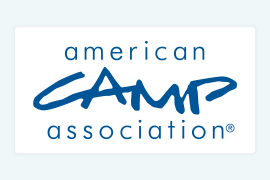When the Tax Cut and Jobs Act became law in 2017, many camp professionals were surprised to learn that their federal taxes would be going up, and for unexpected reasons. Camps that were subject to federal income tax discovered that all of the costs associated with preparing and serving the food that they routinely provide to their staff during mealtimes at camp had suddenly become taxable, resulting in a significantly higher tax bill at the end of the year.
The Tax Cut and Jobs Act included a change to the tax treatment of all costs associated with meals provided to employees by their employer. They were now only 50 percent deductible, when they had been fully deductible before. This change was made with the intent to raise revenue to offset other tax cuts. Meals provided to employees were considered “perks” — not essential. While taking aim at the high-end corporate cafeteria or hi-tech company sushi bar, our lawmakers inadvertently included counselor meals in this new tax revenue pot.
As camp managers know, food service is often the second highest expense for most camp operations, usually second only to staffing costs. With low camper-to-staff ratios, the unintended consequence of the bill was a significant federal tax increase to many camps, often in the five- or six- figure range. Even worse, the non-deductible amount was set to increase to 100 percent at the end of 2025, doubling the tax hit to camps.
Once this became known, our ACA Government Affairs Committee and our DC advocacy team engaged with Congress and the Administration to explain the manifest unfairness of this change, and to seek a fix to what was now written into the tax code. They explained that as a matter of program design, the majority of camps rely on their staff to provide adequate supervision of their campers during mealtimes. Camper supervision and cabin management during meals are critical functions within the job description of a camp counselor. Even if they wanted to, many camp leaders could not excuse staff from meals and remain within state-mandated supervision ratios for youth-serving organizations. Further, even if staff were allowed time away during meals, they may not have had the ability to find meals within reasonable break times given the remote locations of many camps.
At first, our advocates were told that there was no fix to this problem other than passing a new law through Congress that corrected the code and provided an exception for camps. That is among the most difficult things to achieve in any Congress, and was a virtual impossibility given our current state of politics. Our team did not take “no” for an answer and pursued an aggressive advocacy campaign to confirm that camps and counselors were never considered when this particular tax increase was designed, and that the impact on camps was unforeseen and unintended. With that information in hand, our advocates held countless meetings with members of Congress of both parties, Treasury Department staff, members of the White House Domestic Policy Council, and many others to request that a creative solution be found to correct this manifestly unfair outcome.
Our arguments proved to be persuasive, as late last week, the US Treasury Department released new guidance regarding the meals and entertainment expenses included in the Tax Cut and Jobs Act. As a result of the persistent advocacy efforts of the American Camp Association over the past two years, the Treasury Department is now allowing camps to use a slightly different section of the US code — a section that was not altered in the 2017 rewrite of the tax laws — to continue to be able to fully deduct all costs associated with meals provided to camp staff. In fact, they have issued written “guidance” that confirms this, using meals provided by camps to counselors and other staff as a specific written example. As long as campers consume more than 50 percent of the food provided to staff and campers, all expenses related to food and beverage provided to employees is fully deductible for camps.
The new guidance is retroactive to December 31, 2017, when the original tax reform bill was enacted. Any camps that paid additional federal tax due to the limited deductibility of staff meals should consult their tax professional about filing amended returns to receive a refund for this portion of the taxes paid. This is a huge accomplishment for ACA, and we are grateful to our Government Affairs Committee members and our DC advocates for their tireless work in achieving this amazing result.




